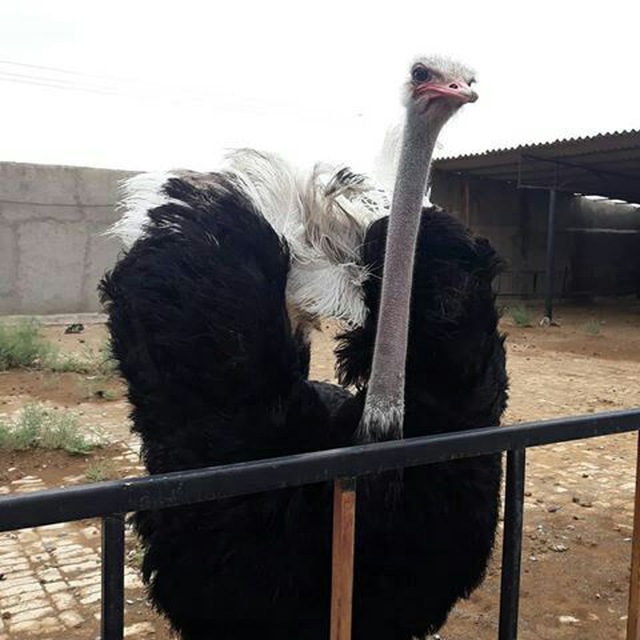control operation of chickens during the fattening period, which must be observed and carried out;
1- Weighing should be done until the eighth week
2- Control of urine and feces of chickens: If the color of urine is brown, it indicates blood in the urine of chickens, and if it is green, it indicates dangerous diseases such as Newcastle disease and food poisoning.
3- Control of the surface under the wing and belly: so that the surface of the belly is not dark and also the skin of the wing surface is dry, so that the skin has lost its elasticity.
Mortality of new chicks is reduced
In the first week of life, the death rate is up to 50%. To prevent this action, we:
First: We must control the amount of food and water consumed by the chickens because the ostriches lose their appetite when they get sick.
Second: Divide them into groups of 8-10 until they are 4-6 weeks old and keep them in cages with wire or plastic bottoms so that they are away from contaminated sources. This will make the death rate less than reach 5%.
In fact, the best way to prevent diseases is to control the movements of ostriches and fully comply with health principles.
Thirdly: When choosing chicks, choose cultivars that have resistant parents and have a good diet during mating and egg laying.
Keeping chickens should have the following principles
1- Care with love and interest
2- Creating security
3- Appropriate food and water
4- Exercise and physical activity
5- Place of storage and rest
Care with love
In caring for chickens, having love and interest in this work makes us pay attention to all the details, which in turn reduces the drop in production.
provide security
At all stages, chickens should feel safe because stress is the number one enemy of chickens.
Adequate water and food
Water and feed should always be available to the chickens and they should not be exposed to direct sunlight and wind in any way.
Food should always be fresh and clean and we should never put fresh food on old food. The water should always be fresh and clean and should be boiled before giving it to the chickens so that there are no microbes in it. The quality of the water consumed by the chickens should be the same as the water consumed by humans, and the temperature should be cool in summer and cool in winter. be lukewarm
Necessary tips about chicken feed
1- Chickens prefer flour food to plates
2- Feeders and waterers should be cleaned daily and the remaining food should be given to older birds
3- Feeders and waterers should not be exposed to direct sunlight and wind
4- Do not pour fresh food on leftover food
5- Giving green and fresh fodder with high protein to stimulate appetite (3 to 4 times a day)
6- Giving pebbles for 3-week-old chickens (4-5 pieces with a diameter of 1-2mm)
7- Giving chopped leaves of nettles
8- The amount of food consumed should be 1.5% to 3% of the bird’s weight
9- The number of feeding times five times a day
10- After the first feeding, the feces of the chickens should be controlled for 3 to 5 days
11- Due to having a yolk sac, the consumption of seeds should be low for up to 10 days
12- Accelerate the absorption of the yolk sac with food restriction
This post is written by MoghaddamOstrich
